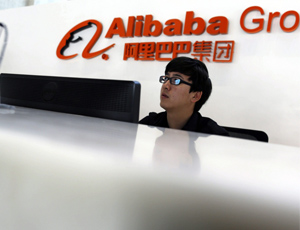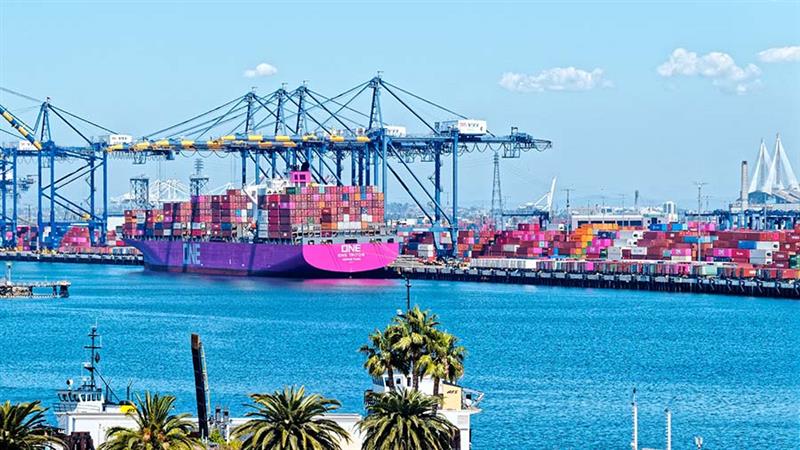China’s Tech Industry Booms as Alibaba Files for Initial Public Offering
 SHANGHAI – Last Tuesday, e-commerce conglomerate Alibaba Group Holdings Ltd. filed their initial public offering (IPO) prospectus, aiming to become listed on either the New York Stock Exchange or NASDAQ. According to Reuters, the potential debut of Alibaba on the U.S. stock exchange market has generated much attention among Silicon Valley and Wall Street investors. China’s online digital technology industry appears to be rapidly booming as internet coverage within the country expands and domestic demand for e-commerce increases.
SHANGHAI – Last Tuesday, e-commerce conglomerate Alibaba Group Holdings Ltd. filed their initial public offering (IPO) prospectus, aiming to become listed on either the New York Stock Exchange or NASDAQ. According to Reuters, the potential debut of Alibaba on the U.S. stock exchange market has generated much attention among Silicon Valley and Wall Street investors. China’s online digital technology industry appears to be rapidly booming as internet coverage within the country expands and domestic demand for e-commerce increases.
Alibaba owns China’s largest e-commerce sites, such as Taobao and T-mall, as well as popular online payment service provider Alipay. It is similar to its counterparts eBay or Amazon, but the volume of transactions handled by Alibaba is more than eBay and Amazon combined, totaling approximately US$248 billion and 231 million users in 2013.
Although Alibaba’s founders currently have full control over the management and development of the corporation, more than half of its shares are foreign-owned, 34.4 percent by Softbank and 22.6 percent by Yahoo. Given that this IPO is set to be the largest since Facebook’s entry into U.S. exchanges in 2012, the competition for Alibaba’s shares prior to the IPO is expected to be fierce. Firms that will underwrite the IPO include Goldman Sachs, JP Morgan Chase, Morgan Stanley, Credit Suisse, Deutsche Bank, and Citigroup.
Despite its significant potential, Alibaba has many domestic rivals in generating foreign direct investment. Tencent Weibo, a social media platform with over 540 million users, has made its debut on NASDAQ last month. Alibaba also faces competition from well-established corporations, such as search engine operator Baidu, and other potential rising online businesses.
RELATED: The Future of E-Commerce in Asia-Pacific
Foreign investors have many reasons to be optimistic about China’s digital technology industry. In 2013, the Chinese government launched a program called “Broadband China” to increase domestic internet coverage, especially in the countryside. The program aims to bring Fiber-To-The-Home (FTTH) to 35 million households, 180 thousands 3G networks, and 1. 3 million WLAN access points. It also plans to establish internet access for 18 thousands administrative villages. This means that the number of internet users is increasing on top of the existing 600 million user base.
Furthermore, the Chinese State Department released a document named “Mid to Long-Term Plan for Constructing National Scientific and Technological Infrastructures (2012-2030)” to announce strategic plans on key industries including online digital technology. The department strives to build a variety of systems and infrastructures to better service internet users in large cities across the country. This opens up demand and opportunities for innovation in online digital technology.
The expansion of internet coverage and the deepening of internet usage allows Chinese consumers with increasing disposable income to engage with online businesses, which makes firms like Alibaba very appealing for foreign investors.
Asia Briefing Ltd. is a subsidiary of Dezan Shira & Associates. Dezan Shira is a specialist foreign direct investment practice, providing corporate establishment, business advisory, tax advisory and compliance, accounting, payroll, due diligence and financial review services to multinationals investing in China, Hong Kong, India, Vietnam, Singapore and the rest of ASEAN. For further information, please email china@dezshira.com or visit www.dezshira.com.
Stay up to date with the latest business and investment trends in Asia by subscribing to our complimentary update service featuring news, commentary and regulatory insight.
Related Reading
 E-Commerce in China
E-Commerce in China
In this issue of China Briefing Magazine, we cover the current laws pertinent to the e-commerce industry in China, as well as introduce the steps involved in setting up an online shop in the country in order to help provide foreign investors with an overview of the e-commerce landscape in China.
 Industry Specific Licenses and Certifications in China
Industry Specific Licenses and Certifications in China
In this issue of China Briefing, we provide an overview of the licensing schemes for industrial products; food production, distribution and catering services; and advertising. We also introduce two important types of certification in China: the CCC and the China Energy Label (CEL). This issue will provide you with an understanding of the requirements for selling your products or services in China.
Shanghai FTZ Launches Cross-Border E-Commerce Platform
Vietnam Online – Understanding Vietnam’s E-commerce Market
Alibaba Snubs Hong Kong, Opts for New York
- Previous Article Special Licenses for Food Production, Catering and Distribution in China
- Next Article Investing in China’s Healthcare Industry



























